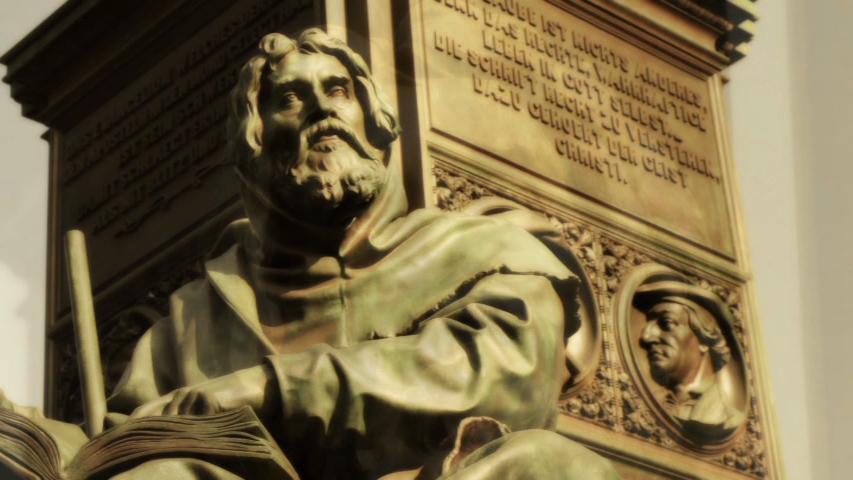 |
|
 |
|
**List: Polish Ministry Bible ( Biblii, Biblia )
POLISH.--1860 S. Bagster [Info only: n.d. John 1:1-14 unknown. col. #1] POLISH.--1860 S. Bagster [Info only: n.d. John 1:1-14 unknown. col. #2] |

Polski / Polish Bible History (3) 
**List: Polish Ministry
Bible ( Biblii, Biblia )
Polish...
POLISH. "I.--GEOGRAPHICAL EXTENT AND STATISTICS. SINCE the partition of Poland, the Polish language has been diffused, by means of the Polish refugees,
through several countries of Europe. About two-thirds of this once powerful kingdom belong to
Russia, the remainder is divided between Austria and Prussia. The total amount of the Polish
population is generally computed at about ten millions, of whom by far the greater number are
Roman Catholics.II.--CHARACTERISTICS OF THE LANGUAGE. The Lekhes, by whom the Polish language was originally spoken, were a Sclavonic race akin to
the Tchekhes of Bohemia: great affinity consequently prevails between the Polish and Bohemian
languages. Many Germanisms occur in Polish, but the construction of the language resembles that
of the classical tongues, and Polish prose is formed on the model of the Latin. To a foreigner, Polish
appears more repulsive and difficult than any other Sclavonic language. This arises partly from the
artificial nature of its grammatical system, but principally from the variety of shades in the pronun-
ciation of the vowels, and from the numerous and peculiar combinations of the consonants; as well asfrom the peculiar nasal sounds, not found in other Sclavonic dialects, which are prevalent in Polish.
Gothic characters are sometimes used in writing Polish, but the Latin are more frequently employed;
and it is to the disuse of the proper Sclavonic characters, and the adoption of an alphabet inadequate
to express the sounds of the language, that many of the peculiarities of Polish orthography are to be
attributed.III.--VERSIONS OF THE SCRIPTURES IN THIS LANGUAGE. A translation of the Scriptures into Polish is said, by competent authorities, to have been made
prior to A.D. 1390, by order of Queen Hedwig, the first wife of Jagello. A translation of the Psalms,
spoken of by Czacki, is thought to have formed part of this version; and the entire Bible, which
belonged to Sophia, fourth queen of Jagello, may possibly have been a copy of it. The few biblical
fragments now extant are of little use in determining this question, and are not considered of
much value.
Since the middle of the sixteenth century no fewer than six different Polish versions have been
executed. The first in order of time was a translation of the New Testament, made by Seklucyan, a
Lutheran, and competent Greek scholar: it was printed at Königsberg in 1551, and was thrice
reprinted before 1555. Several translations were afterwards made of the Psalms, but the first version
of the entire Old Testament appeared at Cracow in 1561. It was translated from the Vulgate by
Leonard, and was reprinted in 1575, and again in 1577. Although designed for Roman Catholics,
it never received the sanction of the pope, because many passages had been taken from the Bohemian
Bible. It is familiarly known as the "Old Cracow Bible," and copies are now very rare. The New
Testament of this version first appeared at Cracow in 1556.
The Radzivil Bible appeared at Brzesc in 1563. It was executed from the original texts by an
anonymous translator for the Calvinists: it only passed through one edition, for prince Radzivil, at
whose expense it had been made and printed, died soon after its publication, and his son, who was
a Catholic, carefully bought up the copies, and burnt them.
The Socinian [b]ible, translated by Budny, a Unitarian clergyman, from the original texts, was
published at Nieswicz, in Lithuania, in 1570, and was reprinted at the same place in 1572. Only
three copies of this version are extant.
The Authorised Polish Bible was first printed at Cracow in 1599. It was designed for the
Roman Catholics, and was sanctioned by Clement VIII. It is accounted one of the best European
translations from the Vulgate, the language being pure and classical, though in some places slightly
antiquated. The translator was Jacob Wuyck. Two other editions followed in 1740 and 1771, but
the three editions did not comprise above 3000 copies.
The Dantzic Bible, translated by Paliurus, Wengierscius, and Micolaievius, from the original
texts, was set forth by the Reformed Church at Dantzic in 1632. This Bible had passed through six
editions before the British and Foreign Bible Society commenced its operations; but these six editions
did not probably comprise above 7000 copies, of which at least 3000 copies were bought up and
destroyed by the Jesuits.
In 1808, an edition of the Polish Scriptures was projected by the Berlin Bible Society, with the
encouragement and aid of the Parent Society. The text selected was that of the Dantzic edition, which,
after careful examination, was pronounced the best Polish translation that could be procured. The
edition was completed in 1810, and consisted of 8000 Bibles and 4000 additional New Testaments.
An edition of 5000 New Testaments, from the text of Jacob Wuyck, was commenced by the
St. Petersburg Bible Society in 1813, and the principal inspection of the press was undertaken by the
metropolitan of the Roman Catholic Church in Russia. Other editions from both of the above texts
have been issued by the Continental Bible Societies, with the aid of the Parent Society. Dr. Pinkerton,
in his "Russia," states that the number of copies printed for the St. Petersburg Bible Society was
7000 Polish Bibles and 16,000 Testaments. The total number of copies printed by the British andForeign Bible Society up to the end of 1859, is 34,902 Bibles, and 84,509 Testaments, together with
42,020 copies of the New Testament and Psalms. The great hindrance to the diffusion of the Scriptures
at the present time in Poland is the policy of Russia; for as two-thirds of Poland belong to that extensive
empire, it is almost wholly subjected to the political influences by which the free circulation of the
sacred volume is impeded in all the other portions of the Russian territories."--The Bible of Every Land. (1860, Second Edition) Samuel Bagster [Info only: RBS apostasy in 1813.]POLISH.--1860 S. Bagster [Info only: n.d. John 1:1-14 unknown. col. #1]
POLISH.--1860 S. Bagster [Info only: n.d. John 1:1-14 unknown. col. #2]
[Christian Helps Ministry (USA)] [Christian Home Bible Course]